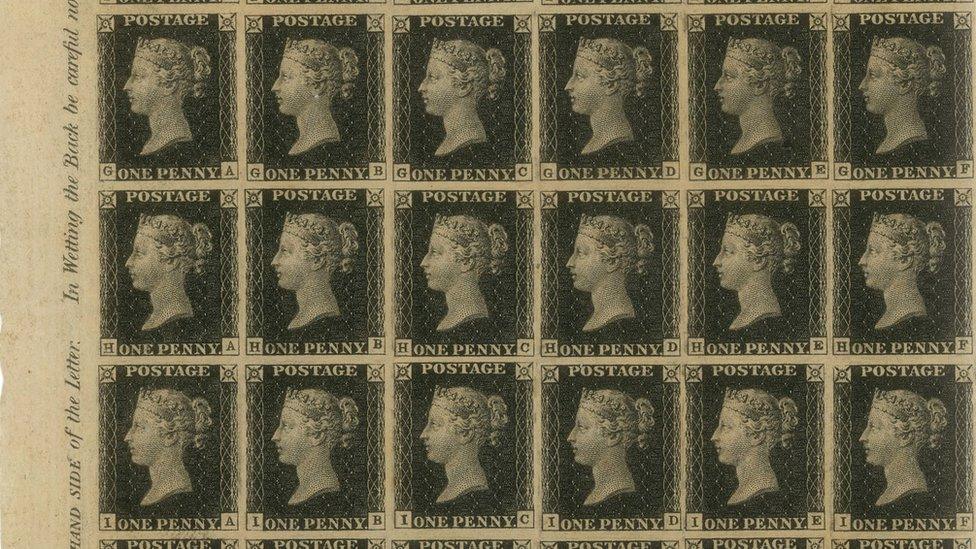Scotland's World Cup win stamp makes Postal Museum archive
- Published
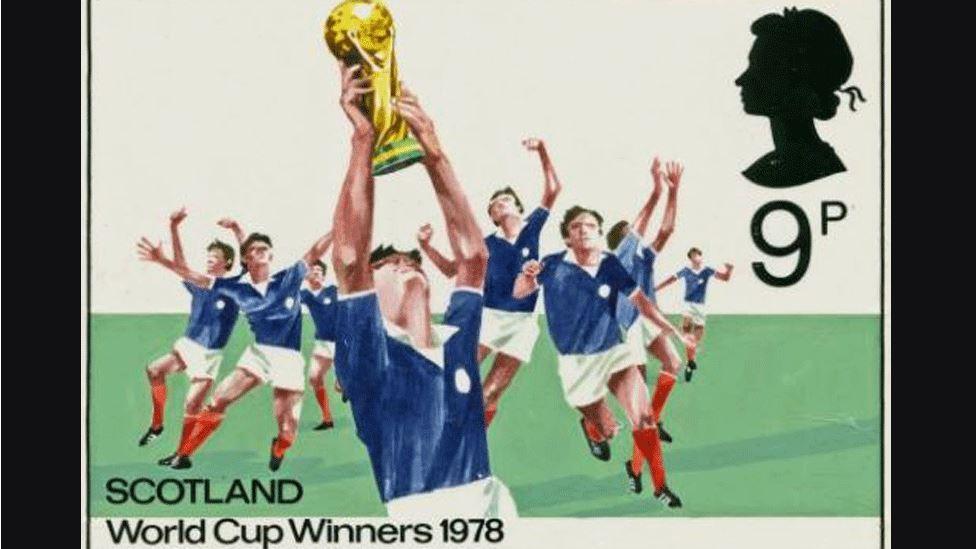
Sadly, for all Scottish football fans, this stamp was never made
Stamps commemorating Scotland's victory at the 1978 World Cup and the creation of a devolved Scottish Assembly following the 1979 referendum are part of an archive of postal history.
They are held in the new Postal Museum, which is opening in central London., external
As neither event actually happened, the stamps were never made.
Ally MacLeod's Tartan Army failed to win football's most coveted trophy and Scottish devolution was shelved for another 20 years.
The stamp designs will not initially be on public display at the new museum but are part of the archive collection there that can be viewed on special appointment.
Chris Taft, head of collections at the Postal Museum, told BBC Scotland: "What they (Royal Mail) do occasionally is produce designs of stamps in the expectation of them happening, because obviously these things take time.
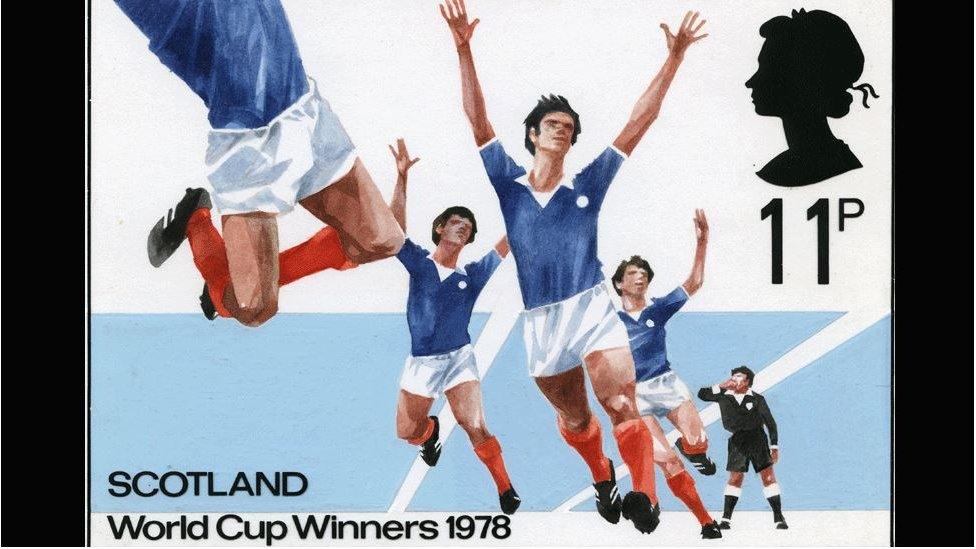
The 1978 Scotland World Cup squad contained stars like Kenny Dalglish, Graeme Souness and Joe Jordan
"If Scotland had been fortunate enough to win the World Cup that year, Royal Mail would obviously want to produce a stamp to mark it, and this was produced and designed but sadly never released.
"They don't do them for every World Cup on the off chance, but that year they obviously decided the chances were high enough to warrant a design."
Two stamps marking the football triumph, one at 9p and the other at 11p, were designed in May, 1978 by Barry Wilkinson - a month before the tournament began.
Sadly, it wasn't to be. As any self-respecting Scottish football fan will know, the Scottish squad - containing the likes of Kenny Dalglish, Graeme Souness and Joe Jordan - went to the competition in Argentina with very high hopes, no doubt singing Andy Cameron's catchy 'Ally's Tartan Army' World Cup song on the way.
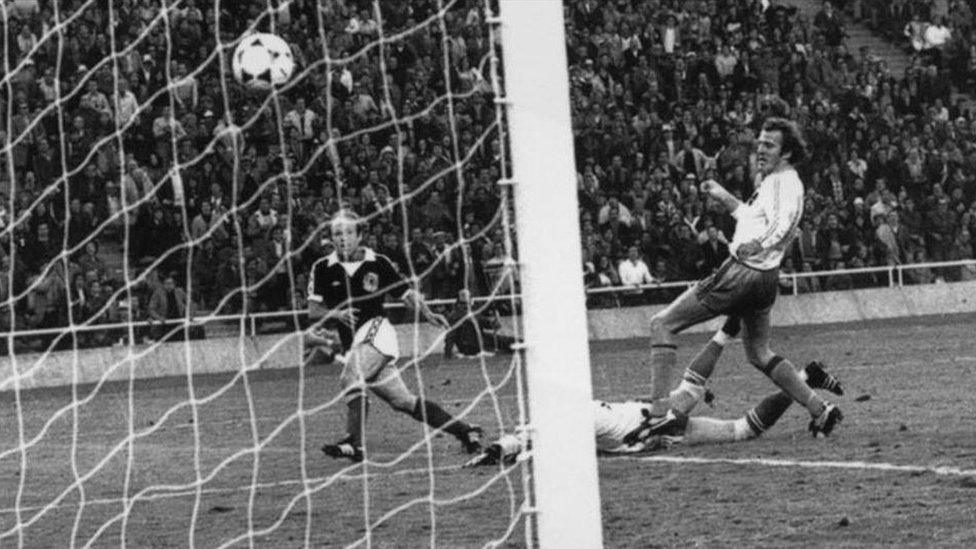
Archie Gemmill scores against the Netherlands in the 1978 World Cup
After an ignominious defeat to Peru and a draw with Iran, Archie Gemmill's famous goal against Holland helped the Scots defeat the eventual World Cup finalists 3-2 and restore some pride. It was too little, too late.
If Scotland had won the World Cup, the stamp would have been produced and been available a month after the final. In the end, the designs were locked away in the archive.
Chris added: "My mum is Scottish, so I would have loved for Scotland to win. I always support Scotland and England jointly in these things. I would love for this stamp to have been produced."
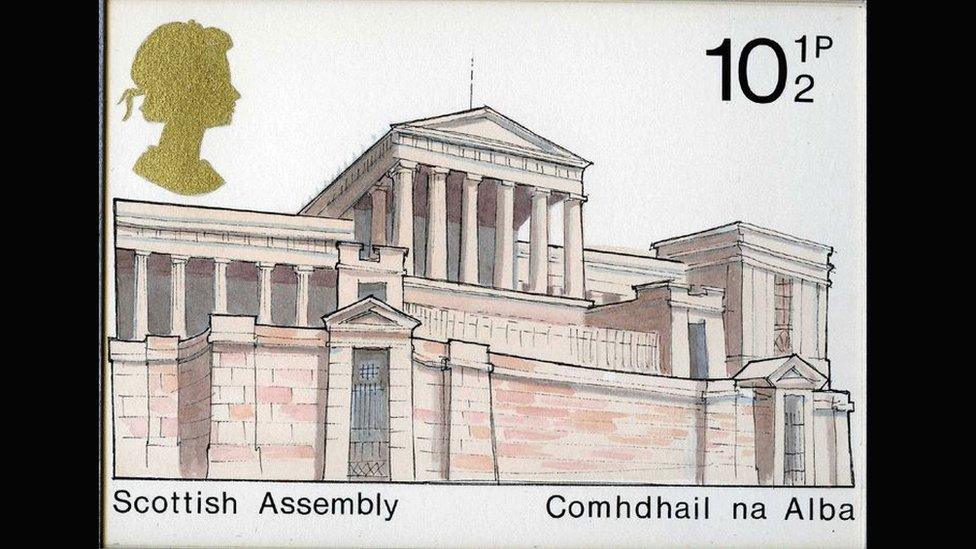
The Scottish Assembly that never came to be was designed as a stamp
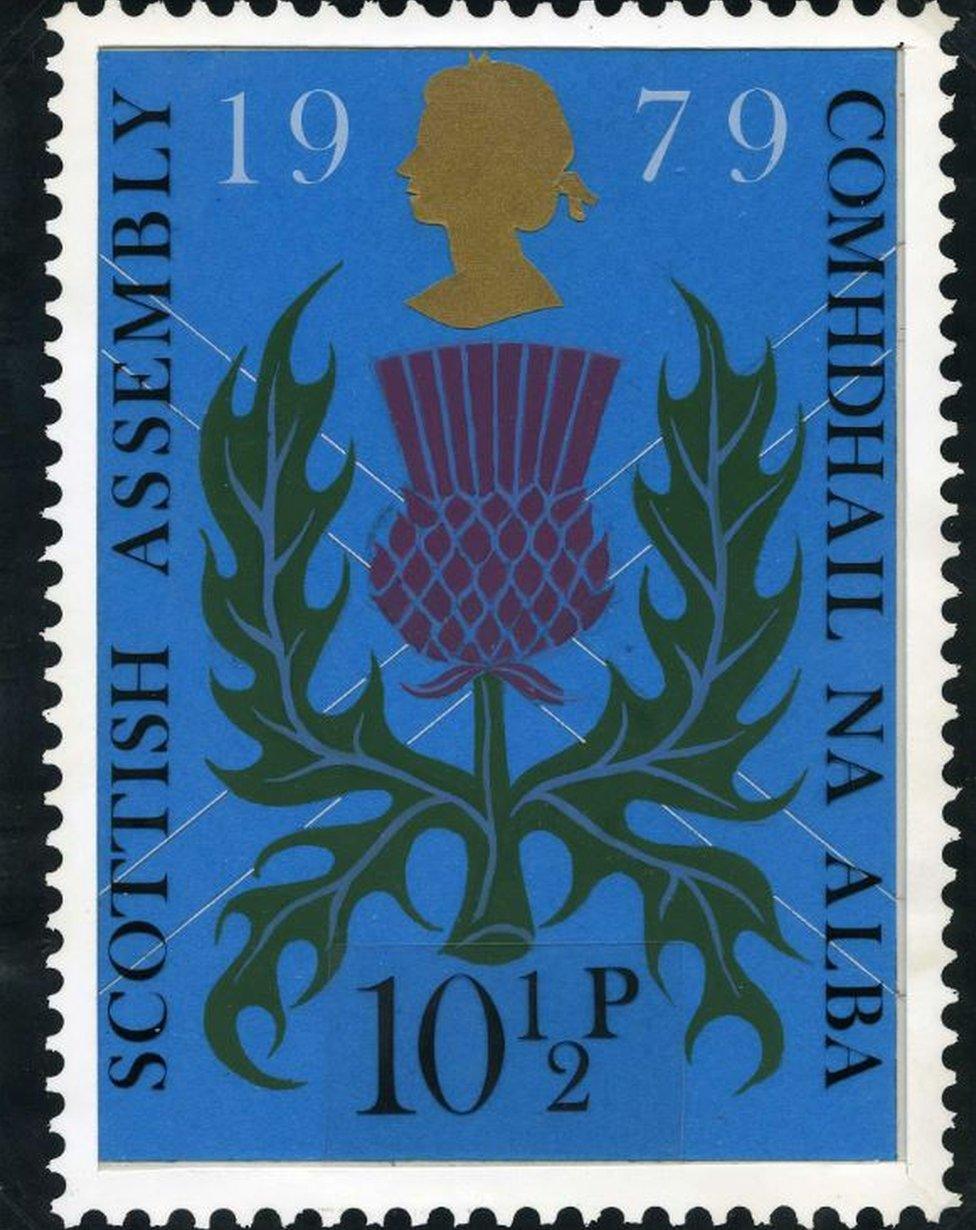
Even though Scots supported devolution, the margin was not enough to make an Assembly a reality
The Scottish Assembly stamp designs were commissioned in case Scots voted for devolution from Westminster in 1979. The Thistle was designed by Stuart Rose, and the building image was created by Willie Rodger.
The House of Commons had decided that a vote for devolution would be void unless at least 40% of the eligible electorate voted that way rather than a simple majority.
Scots were in favour of devolution by 51.6% to 48.4%, but only 32.9% of the total electorate had voted for it so it was never carried.
As a result, designs for these stamps were also locked away never to be used. Supporters of devolution had to wait until 1999 for a Scottish Parliament to be convened.
From the brilliant to the bizarre
Other items in the museum and its archive include the famous Night Mail documentary and a curious tale about rocketry.
Night Mail, which was about the mail train from London to Scotland, was made in 1936 and featured the writing of W. H. Auden and the music of Benjamin Britten. It was a landmark in the development of documentary. A section of the film will be on display.
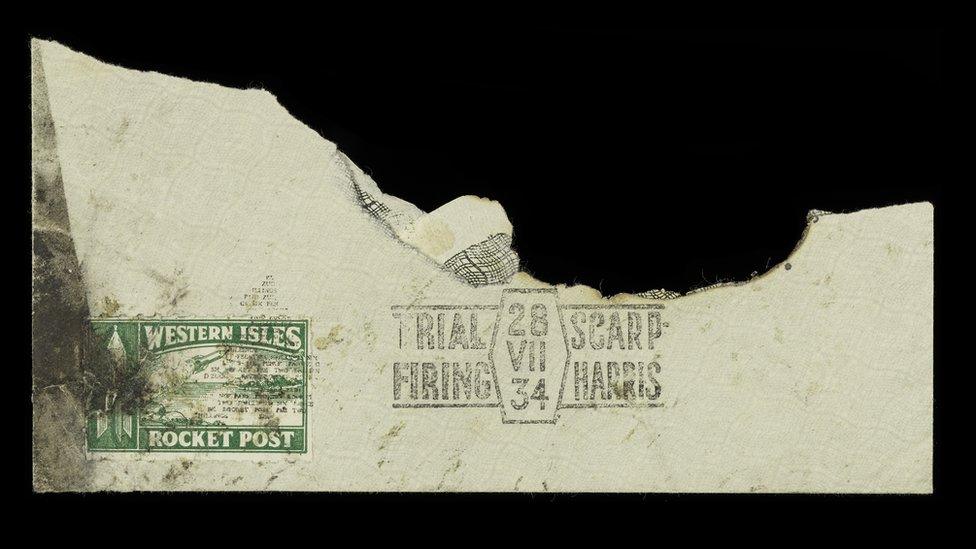
One of the test letters in Gerhard Zucker's rockets that never made it to their destination
Meanwhile, the story of Gerhard Zucker's attempts to deliver mail across in the UK by rocket finds a place in the new museum.
Faced with trying to get mail to all corners of the United Kingdom in 1934, Zucker tried to prove his rockets could take mail from the mainland to the Outer Hebrides.
In an effort to convince the General Post Office that his idea was viable, Zucker made several attempts but his rockets either blew up or crash landed, burning the mail inside. Zucker's dream went up in smoke.
Chris said: "We have got lots of stories about how important communication was and how important it was for people to keep in touch with each other. It is very much a social network story, not a postal history story."
- Attribution
- Published4 December 2013
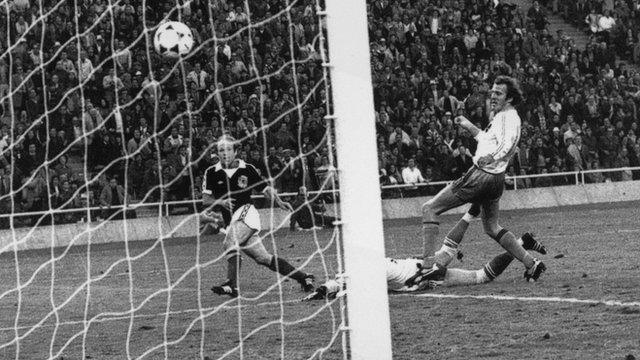
- Attribution
- Published16 May 2014

- Published4 June 2014
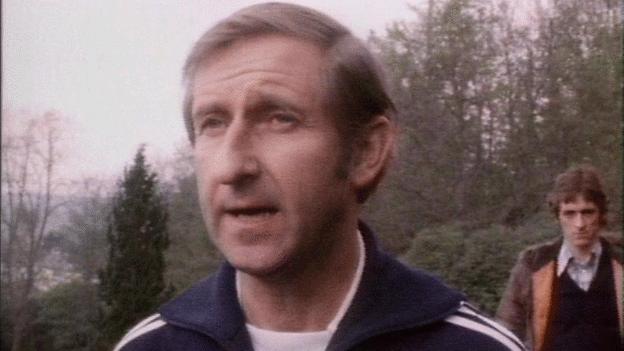
- Published21 July 2011
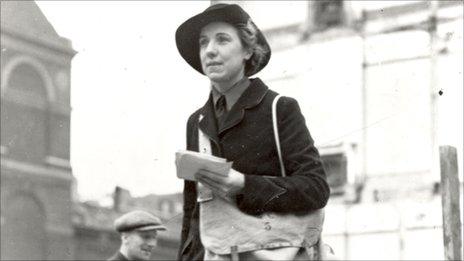
- Published5 January 2016
